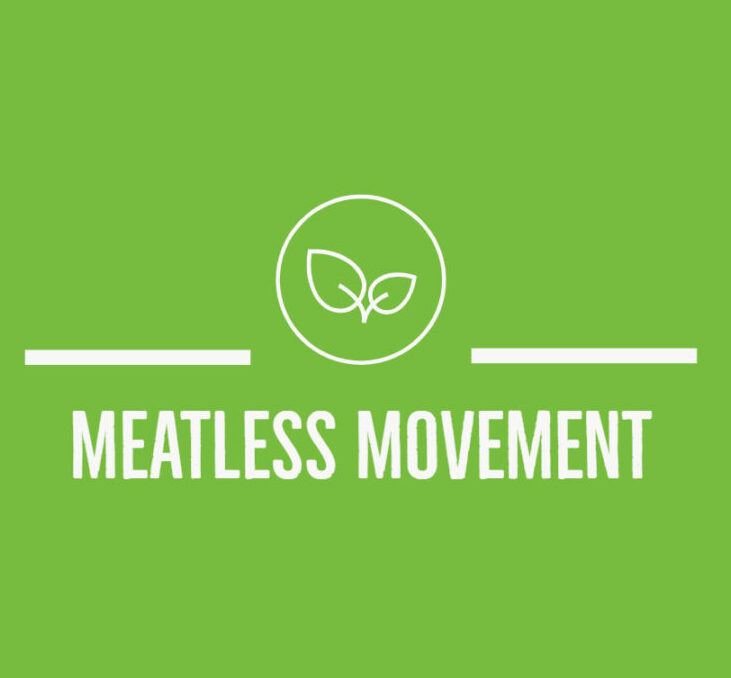In the pursuit of a more compassionate and ethical lifestyle, Niloufar underwent a transformative journey. It all began when she became aware of the cruelty inflicted upon animals in slaughterhouses, a revelation that left a lasting impact. Her perspective took a significant turn when a vegetarian friend shared eye-opening videos depicting the harsh realities of the meat industry. This newfound awareness prompted Niloufar to choose the path of advocating for peace rather than cruelty.
Driven by strong ethical and moral beliefs, Niloufar firmly believes that using animals for food, clothing, or any other purpose is fundamentally wrong. In response, she made the conscious decision to abstain from such products, motivated by a heartfelt desire to alleviate animal suffering.
Beyond her moral compass, Niloufar is deeply concerned about the environmental repercussions of animal agriculture. Recognizing its substantial contribution to pressing global issues like deforestation, carbon emissions, water pollution, and biodiversity loss, she embraced a vegan lifestyle as a means to reduce her carbon footprint and combat these ecological challenges. Health and overall well-being also play a pivotal role in her decision to adopt a vegan lifestyle, solidifying her commitment to a holistic approach to ethical living.
Please tell us more about yourself
Vegan… because I don’t feel superior to any being 💚
nilooooo_vegan
First of all, I would like to appreciate the opportunity that you give to me, my name is Niloufar
29-years old from Iran.

Animals are fellow beings. 🌱✨ Let’s take care of them
nilooooo_vegan
When I figured out the cruel against animals at slaughterhouses and also when a vegetarian friend of
mine has shared some videos about cruelty in slaughterhouses, that I have never seen before and
such videos completely changed my mind and I decided to advocate peace rather than cruelty. Ethical and Moral Beliefs: I believe that using animals for food, clothing, or other purposes is morally
wrong and chose to avoid such products to reduce animal suffering.
Furthermore, the other reason is that I highly concern about the environmental impact of animal
agriculture which is a significant driver of veganism. Hence, I preferred to become vegan to reduce
their carbon footprint, combat deforestation, and address issues like water pollution and biodiversity
loss associated with the meat and dairy industries. Not to say that health and well-being is important too.
I believe that it can lead to weight management, improved heart health, and a reduced risk of certain chronic diseases like diabetes and certain cancers.
To sum up, during this period of three years which I have been vegan am doing my best to support
animal sanctuaries, and work to raise awareness about animal rights issues.
This life style is miracle for my own life and meanwhile impresses my moral life, influences my
mental health and I feel healthier and happier than before.
The enormous challenge I have faced is to deal with non_ vegan people around me. just that ….
I overcome these challenges by being patient and improving my knowledge about this life style.
How can I help friends or family transition to a meatless diet while emphasizing taste, diversity, and health benefits?
My feelings are incredible, when i think that my food doesn’t make animals being killed and cruel_
free makes me thrilled.
I ensure them that there are the wide variety of delicious meatless foods available. And I tell them
trying meatless doesn’t mean giving up taste or diversity in meals.
I suggest them starting with a simple taste test and suggest them to prepare or share a meatless dish
for them to try, choose something that’s flavorful and appeals to their taste preferences. Moreover, proposed to try meatless versions of familiar favorites.

For instance, veggie burgers, plant-based meatballs, and meatless tacos can offer a familiar eating experience. And I also tell them about health benefits: sharing information about the potential health benefits of incorporating more plant-based meals into their diet, such as lower saturated fat and cholesterol content, how reducing meat consumption can help reduce their carbon footprint and support
sustainability.
I usually recommend documentaries, cookbooks, or online resources that can provide more
information about the benefits of a meatless diet and offer tasty recipes. Proposing restaurants which
offer delicious meatless options, making it easier to explore plant-based choices when dining out.
7 Common Misconceptions About Vegan and Vegetarian Diets: How Can These Myths Be Dispelled?
Your food can either be a product of an animal’s suffering, one whose voice has been silenced by force, or it can be of the nature of peace and compassion
nilooooo_vegan
- Lack of Protein: Many people believe that vegans and vegetarians don’t get enough protein. You
can explain that plant-based sources of protein, such as beans, lentils, tofu, tempeh, quinoa, and nuts, are abundant and can meet protein needs easily. Athletes and bodybuilders also thrive on vegan
diets. - Lack of Nutrients: Some think that vegans or vegetarians are deficient in essential nutrients like
vitamin B12, iron, and calcium. You can clarify that with proper planning and a varied diet, vegans can meet their nutritional needs. Supplements are available for nutrients that may be harder to obtain from plant sources. - Tasteless Food: People may believe that vegan or vegetarian food is bland. You can share that
plant-based cooking can be incredibly flavorful with herbs, spices, and creative recipes. There’s a wide range of delicious options to explore. - Expense: Some think that a vegan diet is expensive. You can explain that while specialty vegan
products can be pricey, staples like beans, rice, vegetables, and grains are often budget-friendly. Cooking at home can also save money. - Lack of Variety: People may assume that vegans eat the same thing every day. You can point out
the vast variety in plant-based foods, from different fruits and vegetables to cuisines from around the world. - Social Difficulties: Concerns about social situations, like eating out or attending gatherings, can
deter people from adopting a vegan or vegetarian lifestyle. You can provide tips on how to navigate
these situations, such as researching vegan-friendly restaurants or bringing a vegan dish to share at
gatherings. - Health Benefits: Some believe that a vegan diet is inherently healthier. While it can be very healthy, you can explain that it’s essential to make nutritious choices within a vegan diet, just as in any other
diet.
8 Tips for Starting a Meatless Diet: What Advice Can Help Beginners Ease into the Transition?

When you don’t start with peace on your plate, don’t expect peace and tranquility around you. Whatever you sow, you will reap
nilooooo_vegan
- Start with Meatless Mondays: I recommend to dedicate one day a week to vegetarian or vegan meals to ease into the transition.
- Explore Plant-Based Alternatives: I would suggest trying plant-based meat substitutes like tofu, tempeh, seitan, or store-bought meatless burgers and sausages. These can make the transition easier by providing familiar textures and flavors.
- Learn New Recipes: Try to discover new vegetarian and vegan recipes. There are countless resources online and in cookbooks for tasty plant-based dishes.
- Focus on Whole Foods: Promote the consumption of whole, unprocessed plant foods like fruits, vegetables, grains, legumes, nuts, and seeds. These are not only nutritious but also delicious when prepared creatively.
- Be Patient: It’s okay to take their time and make gradual changes. The goal is progressing, not perfection.
- Connect with the vegan community: Join vegan or vegetarian groups, both online and locally, to connect with others who can offer support, advice, and recipe ideas.
- Understand the reasons: explore your motivations for reducing meat consumption, whether it’s for health, environmental, or ethical reasons. Understanding the “why” can provide added motivation.
- Balanced Diet: I remind them to maintain a balanced diet by getting essential nutrients like protein, iron, and vitamin B12 from plant-based sources or supplements if needed.
Overall, the key is to make the transition enjoyable and sustainable by finding foods and recipes that they genuinely enjoy.
nilooooo_vegan
#vegan 🌱
Star seed🛸☄️👽
all images courtesy of nilooooo_vegan
